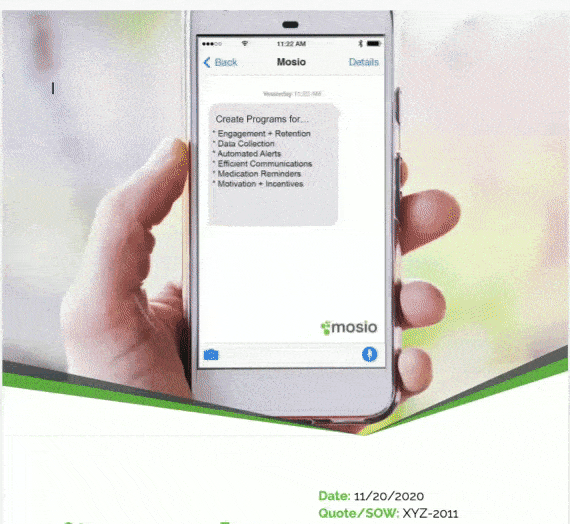When it comes to succeeding as a clinical trial project manager, having access to the best digital tools and solutions is an essential part of your role. The right technology can streamline processes, improve communication, and ultimately enhance trial outcomes.
- Are you struggling to keep track of complex project timelines and deadlines?
- Do you find communication with multiple stakeholders overwhelming and time-consuming?
- Is ensuring adherence and keeping participants engaged a constant challenge?
- Are you concerned about potential risks threatening the success of your clinical trials?
As experts in project management and clinical research, we understand the unique challenges you face. This article offers practical insights and strategies backed by our experience helping clinical trial project managers succeed.
This article is for:
- Experienced clinical trial project managers seeking to optimize their workflows.
- New project managers looking to build a strong foundation for success.
- Anyone involved in clinical research aiming to improve their project management capabilities.
We understand that your time is precious. That’s why we aim to provide valuable, actionable advice directly addressing common pain points you may experience.
What Makes A Good Clinical Trial Project Manager?
Clinical trial project managers are the backbone of clinical research. They wear many hats, juggling numerous responsibilities to ensure trials run seamlessly. Here’s what sets great clinical trial project managers apart:
Exceptional Organization
Attention to detail and the ability to manage complex timelines are critical to maintain accurate records and ensure adherence to trial protocols. Clinical trial project managers must track budgets, resources, and monitor progress against established milestones.
Strong Communication
Developing effective lines of communication among sponsors, research teams, investigators, and participants is important for timely decision-making and problem-solving. Project managers must communicate clearly and consistently in various formats, including presentations, reports, emails, and meetings.
Problem-Solving Mindset
Proactively identifying potential issues, developing mitigation plans, and adapting swiftly to changes are essential to prevent costly delays. As a project manager, you should aim to anticipate challenges, create contingency plans, and be flexible in your approach.
Leadership Skills
The ability to motivate and steer teams toward shared goals is crucial for the success of any clinical trial project. A project manager must build trust, delegate effectively, and provide regular feedback to keep their team aligned and motivated.
How To Strategize As A Clinical Project Manager
A well-defined strategy sets the stage for success. Follow these steps to develop an effective project management plan:
1 – Connect With Clinical Trial Stakeholders
Begin by identifying all stakeholders involved in the clinical trial. This could include sponsors, investigators, site personnel, participants, regulatory bodies, ethics committees, and anyone else who has a vested interest in the trial’s success. Schedule initial meetings or calls with these stakeholders to understand their expectations, priorities, and any specific requirements they may have. Establish clear communication channels and protocols for regular updates, feedback, and decision-making processes.
2 – Set & Prioritize Clinical Trial Goals
Work with sponsors and key stakeholders to define clear and measurable project goals. Use the SMART (Specific, Measurable, Achievable, Relevant, and Time-bound) framework to ensure goals are well-defined and attainable. Prioritize these goals to ensure the most critical objectives are addressed first. Consider factors such as the urgency of the research question, the therapeutic area, resource availability, and regulatory requirements when setting priorities.
3 – Outline Project Deliverables
Break down the complex project into smaller, more manageable components. Define the specific deliverables required at each stage of the clinical trial. These deliverables could include:
- Study protocols and amendments
- Site selection and feasibility assessments
- Participant recruitment materials
- Regulatory submissions and approvals
- Data collection forms and case report forms
- Statistical analysis plans
- Final study reports
4 – Develop The Clinical Trial Schedule
Create a comprehensive master timeline that incorporates all tasks, deliverables, and milestones. Start with the major milestones (e.g., first patient enrolled, last patient last visit, database lock) and work backward to determine the necessary steps and their associated timelines. Use project management software tools to visualize dependencies and identify potential bottlenecks. Be sure to factor in realistic buffer times for unforeseen delays.
5 – Pinpoint Trial-Specific Issues & Conduct A Risk Assessment
No clinical trial is without risk. Proactively analyze potential risks that could impact the trial’s success. Consider risks like recruitment delays, budget overruns, protocol deviations, adverse events, and data integrity issues. Brainstorm with your team on potential mitigation strategies for each identified risk. Develop contingency plans that can be implemented if risks materialize.
6 – Share Your Clinical Trial Project Plan With Stakeholders
Once you have a robust project plan, present it to all stakeholders to obtain their feedback and buy-in. Be prepared to address any concerns or questions. Regular communication is essential throughout the trial. Provide stakeholders with progress updates, highlight any changes to the plan, and celebrate milestones along the way.
Picking The Right Tools To Succeed As A Clinical Project Manager
Technology has revolutionized the way clinical trials are managed. Here’s why investing in the right tools can transform your approach to project management:
Streamlined Processes
Purpose-built project management tools reduce manual tasks and automate workflows, freeing up your time for more strategic work. Look for solutions that manage complex timelines, track resources, and centralize trial documentation.
Improved Communication
Utilize tools that facilitate collaboration and communication among all stakeholders. Implement solutions that offer secure messaging, file sharing, and real-time updates to keep everyone informed and aligned.
Enhanced Adherence
Combat participant dropout with technology that boosts engagement and adherence. Implement strategies like automated reminders, interactive surveys, and personalized communication channels.
Data-Driven Insights
Make informed decisions with tools that offer real-time analytics and reporting capabilities. Visualize trial progress, identify trends, and optimize processes with data-driven insights.
Using Mosio For Automated Text Messaging With Clinical Trial Participants
Mosio is a leading automated text messaging platform designed specifically to meet the needs of clinical research. Here’s how it enhances clinical trial project management:
Reach Participants Instantly
Text messaging is one of the most effective ways to connect with participants. Send timely reminders, compliance alerts, and surveys directly to their preferred devices for immediate engagement.
Increase Engagement
Mosio’s personalization features make communications feel relevant and tailored to each participant. Build trust, increase motivation, and improve adherence to study protocols.
Automate Workflows
Mosio offers powerful automation for tasks like scheduling appointment reminders, sending medication adherence prompts, and deploying pre-defined surveys. Reduce staff burden and create a more seamless experience for both team members and participants.
Real-Time Data
Mosio eliminates the need for manual data entry. Collect responses from participants directly into your database, saving time and minimizing errors. Monitor trends and intervene promptly when needed.
Integrate With Ease
Mosio can seamlessly integrate with existing clinical trial management systems (CTMS), Electronic Data Capture (EDC) platforms, and REDCap. This ensures smooth data flow, avoids duplication, and saves valuable time for your team.
Mosio’s features directly address common project management pain points:
- Missed appointments? Set up automated appointment reminders to improve show rates and keep participants on schedule.
- Lack of adherence? Send timely medication or task reminders with confirmation options to improve compliance.
- Poor data quality? Mosio’s surveys go directly to participants’ phones – no apps required. Get real-time data, reduce errors, and catch potential issues quickly.
By choosing the right technology, like Mosio, clinical trial project managers can significantly improve their efficiency, optimize trial processes, and ultimately achieve better results.
To learn more about how Mosio can transform your clinical trial project management, contact us for a quote or project plan. Let technology do the heavy lifting, so you can focus on making a difference in patients’ lives.







